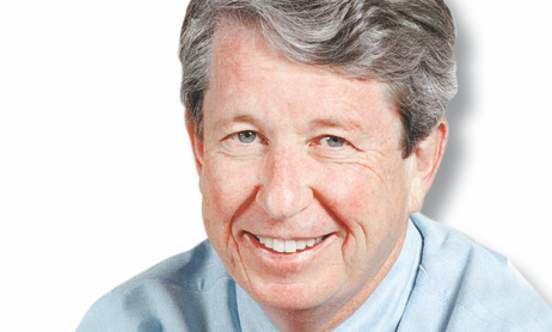Kulongoski should now be focusing on our jobs
Published 4:00 am Sunday, January 25, 2009

- Why we celebrate Lincoln’s birthday
During the recession of 2001-03, a guest came to the editorial board of The Bulletin with a sobering presentation.
The dot-com bubble had burst and then-Gov. John Kitzhaber arrived to explain why Oregon was economically out of whack. In that recession, Kitzhaber said, the government was woefully short of revenue.
Then he shocked us.
He said Oregon was bound to go through that again if its leaders didn’t stop building programs in good times that it couldn’t sustain in bad times.
In other words, the economic engine of Oregon could pull the economic passenger car of the state across level ground, so long as it had a full head of steam.
But the minute it hit an incline, or the engine pressure dropped, we would be right back to wrenching cuts in state programs.
His fear was that we would muddle through that recession, learn nothing significant from it, and not address tax structure, or its long-term commitments, or grow the job base.
Another recession, he added, will come along, and if we don’t make essential changes, we’ll be in worse shape.
Well, folks, here we are.
We are in a whopper of a recession, and we have, more or less, the same job, tax and public obligation profile that we had at the turn of millennium.
And we will now go through the same contraction that we did the last time around with one big difference. This time it will be more severe.
And what’s our answer?
Gov. Ted Kulongoski has proclaimed that we need to raise corporate taxes, increase state fees and add bonded indebtedness to make a better state.
The governor is a good man, and his interests — health care, education and the environment — are hard to argue with.
But the governor, with just two years left in an otherwise lackluster tenure, is a dangerous man.
He’s a fading politician in a hurry, a hurry to establish a legacy.
And, whether he realizes it or not, he is not going to achieve a health, education or environmental legacy, however admirable they would be, unless he establishes a jobs legacy.
That will take more time than the governor has left in office and would be an act of political selflessness beyond the capacity of most politicians, because the benefits of such actions would fall into the lap of his successors.
There were a couple of reports in the national media during the last few weeks that underlined the problem Oregon confronts.
No state, of course, is immune to the impacts of the current downturn, but Oregon has a special problem. It ranks near the top of all states in unemployment, and near the bottom of all states in job creation.
Not to overstate the obvious, but without jobs, there is no income, and without income, there is no tax revenue.
And to make this a triple whammy, when folks can’t find work they start looking for state and federal agencies to help them out.
That’s where we are today. That’s where we were in the last recession, and that’s where we will be in the next one, unless we get serious about making Oregon a more job-friendly state and matching what we wish to do with what we are able to do.
Interestingly, President Barack Obama and the public at large seem to understand this. In his inaugural address, the president said the market, while not perfect, is where jobs are created. And the public echoed its sense in a recent Pew Research Center survey. In a list of 20 possible areas of concern, Pew reports the public overwhelmingly chose fixing the economy and creating jobs as its top priorities.
Last on the priority list came global warming, six selections below the public’s concern with “moral decline.”
The governor probably could squeeze more short-term money out of new taxes on companies and new fees on individuals. But only in the short term.
In the long term, such an approach will solidify our reign near the top of the list of least-employed states.
What a distinction.




